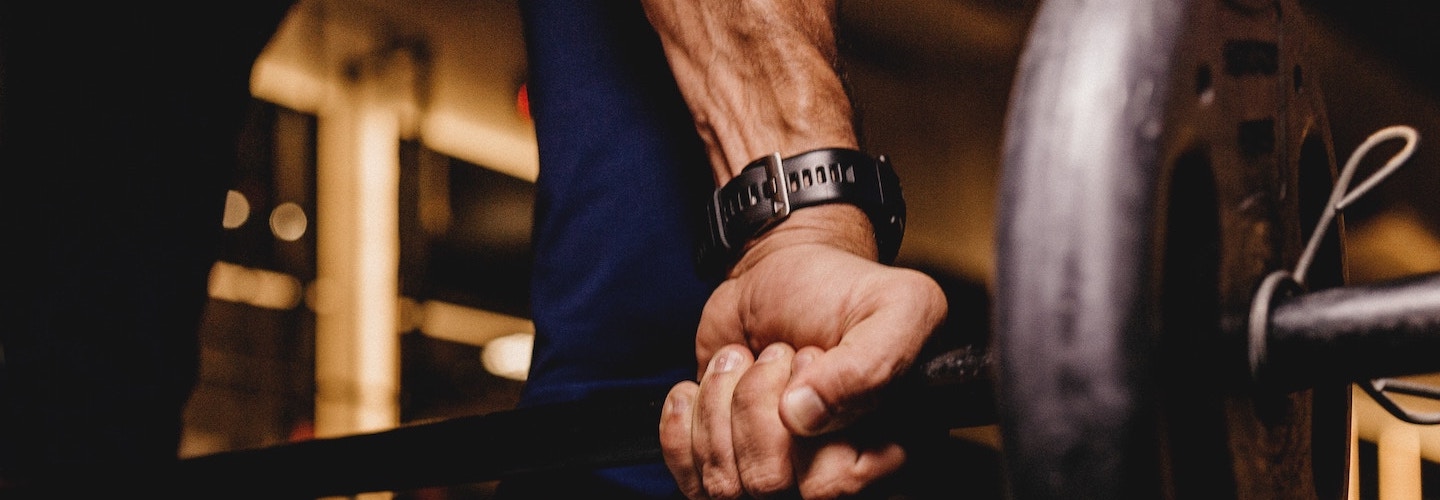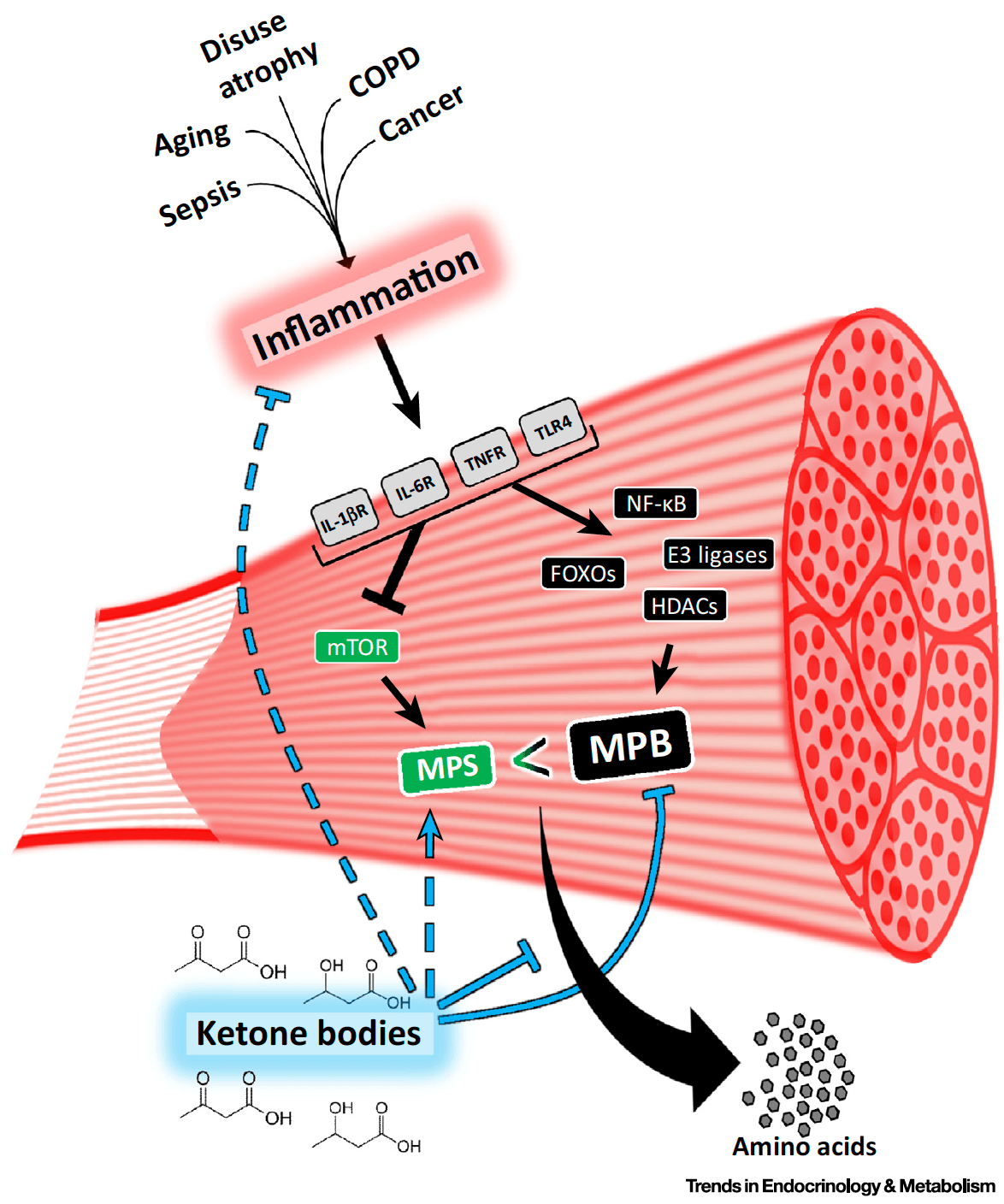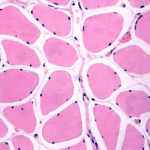I read an interesting article authored by my friend Dom D’Agostino and his colleagues on the anti-catabolic effects of ketone bodies in skeletal muscle.
They note that we’ve already known about anti-catabolic effects of ketones including attenuation of glycolysis, hepatic glucose output, and adipose tissue lipolysis.
The authors point to a recent study showing that anti-catabolic effects of B-hydroxybutyrate (BHB) were demonstrated in human skeletal muscle under inflammatory insult (in this case, provided by lipopolysaccharide, or LPS for short), supporting the hypothesis that BHB can exert anti-catabolic effects in inflammation-driven muscle atrophy.
I also remember reading years ago from the work of Steve Phinney and Jeff Volek that the primary driver of muscle protein synthesis (MPS) is the availability of essential amino acids (especially leucine) and that in the keto-adapted state, blood levels of leucine increase. Here, the keto-adapted state, which includes elevated levels of BHB, spares protein and preserves lean tissue. (For more on this, check out Phinney and Volek’s book, The Art and Science of Low Carbohydrate Performance.)
So…I was wondering about all of this in the context of fasting compared to chronic caloric restriction and their effects on muscle loss/preservation. Do higher BHB levels in water-only fasting prevent muscle loss greater than hypocaloric (i.e., CR) states without high ketone (i.e., BHB/AcAc) levels?
Also, it’s been observed that resistance training prevents most, if not all in some cases, the muscle loss that comes with CR. You may recall in one of my AMA’s when I discussed my quarterly 7-day water-only fasts, I’m amazed at the lack of muscle loss, provided I lift weights daily. In fact, with many cycles of such fasts, I see the same results over and over, suggesting that preservation of leucine alone is sufficient to maintain muscle mass.
– Peter







You may recall in one of my AMA’s when I discussed my quarterly 7-day water-only fasts, I’m amazed at the lack of muscle loss, provided I lift weights daily.
Here ^-^ are you saying that when you do 7 day fasts you lift weights daily during the fast?